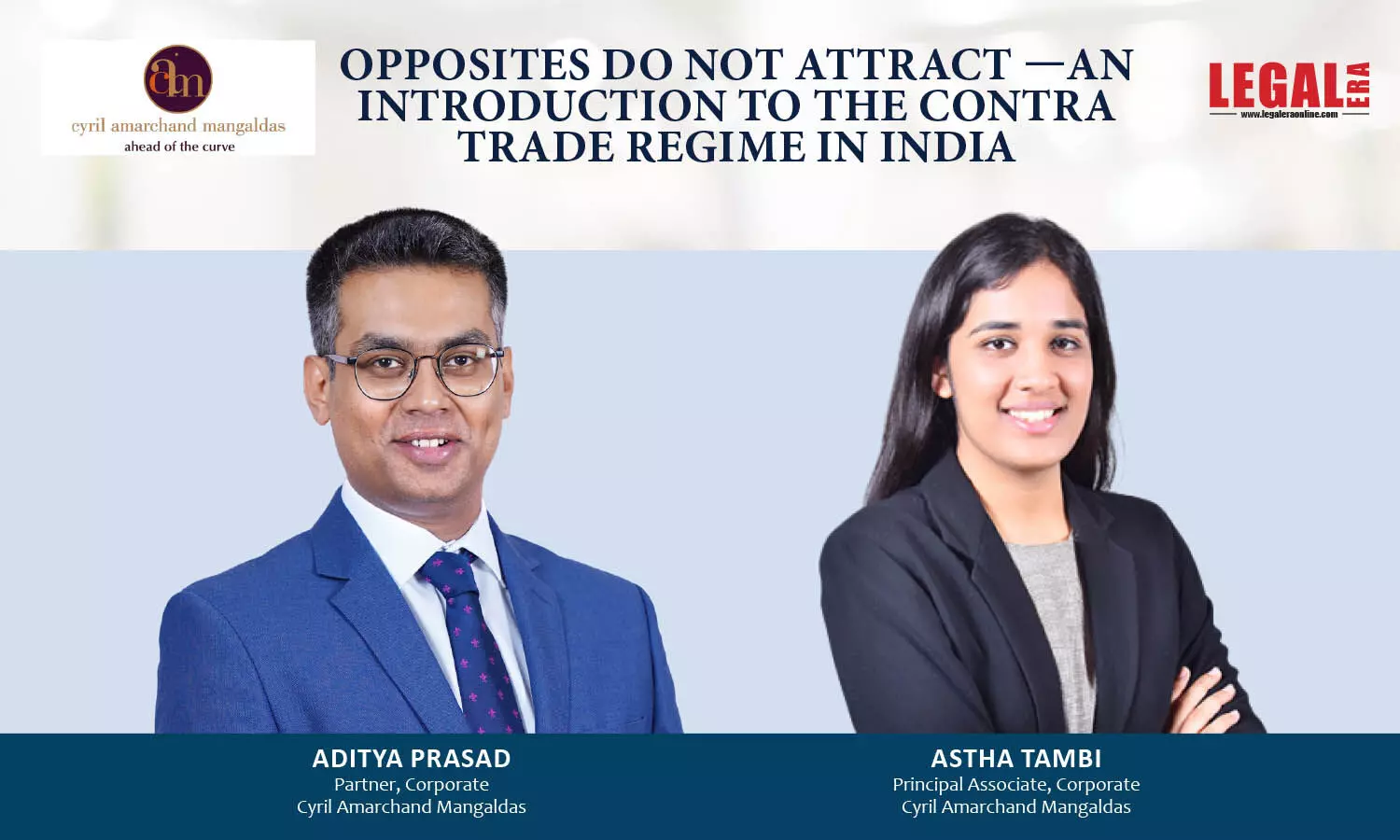- Home
- News
- Articles+
- Aerospace
- Artificial Intelligence
- Agriculture
- Alternate Dispute Resolution
- Arbitration & Mediation
- Banking and Finance
- Bankruptcy
- Book Review
- Bribery & Corruption
- Commercial Litigation
- Competition Law
- Conference Reports
- Consumer Products
- Contract
- Corporate Governance
- Corporate Law
- Covid-19
- Cryptocurrency
- Cybersecurity
- Data Protection
- Defence
- Digital Economy
- E-commerce
- Employment Law
- Energy and Natural Resources
- Entertainment and Sports Law
- Environmental Law
- Environmental, Social, and Governance
- Foreign Direct Investment
- Food and Beverage
- Gaming
- Health Care
- IBC Diaries
- In Focus
- Inclusion & Diversity
- Insurance Law
- Intellectual Property
- International Law
- IP & Tech Era
- Know the Law
- Labour Laws
- Law & Policy and Regulation
- Litigation
- Litigation Funding
- Manufacturing
- Mergers & Acquisitions
- NFTs
- Privacy
- Private Equity
- Project Finance
- Real Estate
- Risk and Compliance
- Student Corner
- Take On Board
- Tax
- Technology Media and Telecom
- Tributes
- Viewpoint
- Zoom In
- Law Firms
- In-House
- Rankings
- E-Magazine
- Legal Era TV
- Events
- Middle East
- Africa
- News
- Articles
- Aerospace
- Artificial Intelligence
- Agriculture
- Alternate Dispute Resolution
- Arbitration & Mediation
- Banking and Finance
- Bankruptcy
- Book Review
- Bribery & Corruption
- Commercial Litigation
- Competition Law
- Conference Reports
- Consumer Products
- Contract
- Corporate Governance
- Corporate Law
- Covid-19
- Cryptocurrency
- Cybersecurity
- Data Protection
- Defence
- Digital Economy
- E-commerce
- Employment Law
- Energy and Natural Resources
- Entertainment and Sports Law
- Environmental Law
- Environmental, Social, and Governance
- Foreign Direct Investment
- Food and Beverage
- Gaming
- Health Care
- IBC Diaries
- In Focus
- Inclusion & Diversity
- Insurance Law
- Intellectual Property
- International Law
- IP & Tech Era
- Know the Law
- Labour Laws
- Law & Policy and Regulation
- Litigation
- Litigation Funding
- Manufacturing
- Mergers & Acquisitions
- NFTs
- Privacy
- Private Equity
- Project Finance
- Real Estate
- Risk and Compliance
- Student Corner
- Take On Board
- Tax
- Technology Media and Telecom
- Tributes
- Viewpoint
- Zoom In
- Law Firms
- In-House
- Rankings
- E-Magazine
- Legal Era TV
- Events
- Middle East
- Africa

Opposites Do Not Attract —An Introduction To The Contra Trade Regime In India
Opposites Do Not Attract —An Introduction To The Contra Trade Regime In India

Opposites Do Not Attract —An Introduction To The Contra Trade Regime In India If a contra trade is executed, inadvertently or otherwise, then the profits from such trade shall be disgorged and remitted into the Investor Protection and Education Fund administered by SEBI. This is in addition to any penalties that may be imposed by SEBI. In India, insider trading is restricted by the...
To Read the Full Story, Subscribe to Legal Era News
Access Exclusive Legal Era Stories, Editorial Insights, and Expert Opinion.
Already a subscriber? Sign in Now
Opposites Do Not Attract —An Introduction To The Contra Trade Regime In India
If a contra trade is executed, inadvertently or otherwise, then the profits from such trade shall be disgorged and remitted into the Investor Protection and Education Fund administered by SEBI. This is in addition to any penalties that may be imposed by SEBI.
In India, insider trading is restricted by the Securities and Exchange Board of India (Prohibition of Insider Trading) Regulations, 2015 (the “Regulations”). The Regulations prohibit insiders from communicating, providing access to unpublished price sensitive information (“UPSI”) related to a listed company and trading in securities when in possession of UPSI.
In terms of the Regulations, listed companies are required to regulate, monitor and report trading by designated persons and immediate relatives of designated persons, towards achieving compliance with the Regulations by adopting the minimum standards set out in the Regulations (“Code”). One of the standards set out in the Regulations is a restriction on ‘contra trades’.

Who is a ‘Designated Person’?
The Regulations require listed companies to identify designated persons who are to be covered within the ambit of the Code based on their role and function in the listed company and the access that such role affords to UPSI. Categories of designated persons include: (i) employees designated based on their functional role/access to UPSI; (ii) employees of material subsidiaries, based on their functional role/access to UPSI; (iii) promoters of listed companies; (iv) CEO and employees up to 2 levels below the CEO; and (v) support staff or secretarial staff who have access to UPSI.
What is a Contra Trade?
The Regulations restrict a designated person and his/her immediate relative, who has undertaken ‘trading’1 in the listed securities from carrying out an opposite trade for a minimum period of 6 months from the date of the initial trade. In other words, any buy/sell trade undertaken by a designated person within 6 months of an earlier sell/buy trade, constitutes a ‘contra trade’ and is restricted. By way of illustration, if a designated person, purchases shares on January 1 and on March 1, such designated person is restricted from selling shares till June and August respectively- additional purchases of shares during such 6 month period are not restricted.
While the Regulations and Code do not define the composition of a ‘contra trade’, SEBI has in the Comprehensive FAQs on SEBI (PIT) Regulations 2015 dated March 31, 2023 (“FAQs”) indicated that any buy/sell trade, undertaken by a Designated Person (DP) and their immediate relatives, within 6 months of an earlier sell/buy trade, respectively, where both the trades have been done in the open market, will amount to contra trade. (emphasis supplied).
In the FAQs, SEBI has also indicated that acquisitions/disposals of shares undertaken through corporate actions such as rights issues, follow on public offers, offers for sale, exit offers, buyback offer, open offers, mergers/amalgamation, demerger etc., constitute non-open market trades and all other kinds of trades constitute open market trades.
Relaxations and Exceptions
The Regulations empower the compliance officer of a listed company to grant relaxation from the strict application of the ‘contra trade’ restriction for reasons that are recorded in writing, provided that such relaxation does not violate the Regulations.
In other words, any buy/sell trade undertaken by a designated person within 6 months of an earlier sell/buy trade, constitutes a ‘contra trade’ and is restricted
Additionally, the FAQs issued by SEBI provide that acquisition of securities pursuant to rights issues, follow on public offers, offers for sale, bonus issues, share splits, merger/amalgamation/demergers do not attract ‘contra trade’ restrictions, provided that the initial disposal transaction complied with the Regulations. Similarly, the Regulations, exempt disposal of securities pursuant to buybacks, open offers, exit offers, mergers/amalgamations from the ‘contra trade’ net, provided the initial acquisition transaction complied with the Regulations. However, any subsequent opposite trades within a 6 month period from the above acquisition/disposal will constitute a contra trade.
The Regulations also exempt trades executed pursuant to exercise of employee stock options (“ESOPs”) and the FAQs clarify that subscribing, exercising and subsequent sale of shares, acquired by exercising employee stock options do not attract contra trade restrictions.
The FAQs also clarify that ‘contra trade’ restrictions are not applicable in the context of transmission of shares but are applicable in the case of trading in rights entitlement. Therefore, a rights entitlement trade by a designated person within a period of 6 months from a previous acquisition transaction will be restricted.
Commencement of the ‘contra trade’ restriction
As a general matter, the ‘contra trade’ restriction commences from the date of the previous buy/sell transaction that is in question. SEBI has also clarified that with respect to certain specific corporate actions, the 6-month period is to be calculated as follows:
Corporate Action | Commencement |
|---|---|
Merger/amalgamation | Date of acquisition of securities which were merged/amalgamated |
Demerger | Date of acquisition of securities which were demerged |
Bonus and share split | Date of acquisition of original securities, on which bonus/split shares were received |
Buyback/open offer | Date of disposal of securities under a buyback/open offer |
Additionally, SEBI has in an informal guidance issued in the case of Share India Securities Limited2¸ in the context of conversion of warrants into equity shares taken a view that conversion of warrants into equity shares is in the nature of an acquisition and any disposal transaction prior to the lapse of 6 months from the date of allotment of shares (pursuant to conversion of warrants) attracts contra-trade restrictions. SEBI has also clarified that conversion of warrants into equity prior to the passage of 6 months from a previous sale transaction does not attract contra trade restrictions.
ESOPs
SEBI has clarified that in respect of ESOPs, subscribing, exercising and subsequent sale of shares, so acquired by exercising the ESOPs (‘ESOP Shares’) shall not attract contra trade restrictions. For purposes of contra trade, subscription of ESOPs and acquisition of shares through the exercise of ESOPs are not considered as ‘buy’ trades, therefore if a designated person has executed any opposite trade in the 6 month period prior to the exercise of ESOPs, he/she can still subscribe to and exercise the ESOPs without attracting contra trade restrictions.
However, assessment of contra trade restrictions becomes relevant when timing the sale of the ESOP Shares. Any sale of ESOP Shares within a 6 month period from the date of exercise of ESOPs would not amount to contra trade, but will be subject to the other provisions of the Regulations, such as pre-clearances, disclosures etc. However, sale/pledge of ESOP Shares within a period of 6 months from another buy trade will be a contra trade.
Trades executed under ‘trading plans’
Designated persons, by virtue of their role and function in the listed company, are perpetually in access of UPSI and are thus barred from trading in the securities. To allow such persons to trade in a compliant manner, the Regulations provide for the mechanism of ‘trading plans’, wherein a designated person may carry out trades in pre-defined quantities, price range and time period, as approved under the plan submitted by the designated person. Earlier, contra trade restrictions were not applicable for the trades that were executed pursuant to a trading plan. However, pursuant to the SEBI (Prohibition of Insider Trading) (Second Amendment) Regulations, 2024, wherein SEBI modified the regulatory framework for trading plans, this exemption has been removed- therefore, a restriction of minimum 6 months would now apply to any two opposite trades carried out by designated persons pursuant to the trading plan.
Concluding Remarks
If a contra trade is executed, inadvertently or otherwise, then the profits from such trade shall be disgorged and remitted into the Investor Protection and Education Fund administered by SEBI. This is in addition to any penalties that may be imposed by SEBI. With increased scrutiny by SEBI on insider trading violations, it has become pertinent to assess the implications and permissibility of trades undertaken by designated persons, from an insider trading perspective.
Disclaimer – The views expressed in this article are the personal views of the authors and are purely informative in nature.
2. SEBI/HO/ISD/ISD-PoD-2/OW/2023/0000042307/1 dated October 13, 2023


